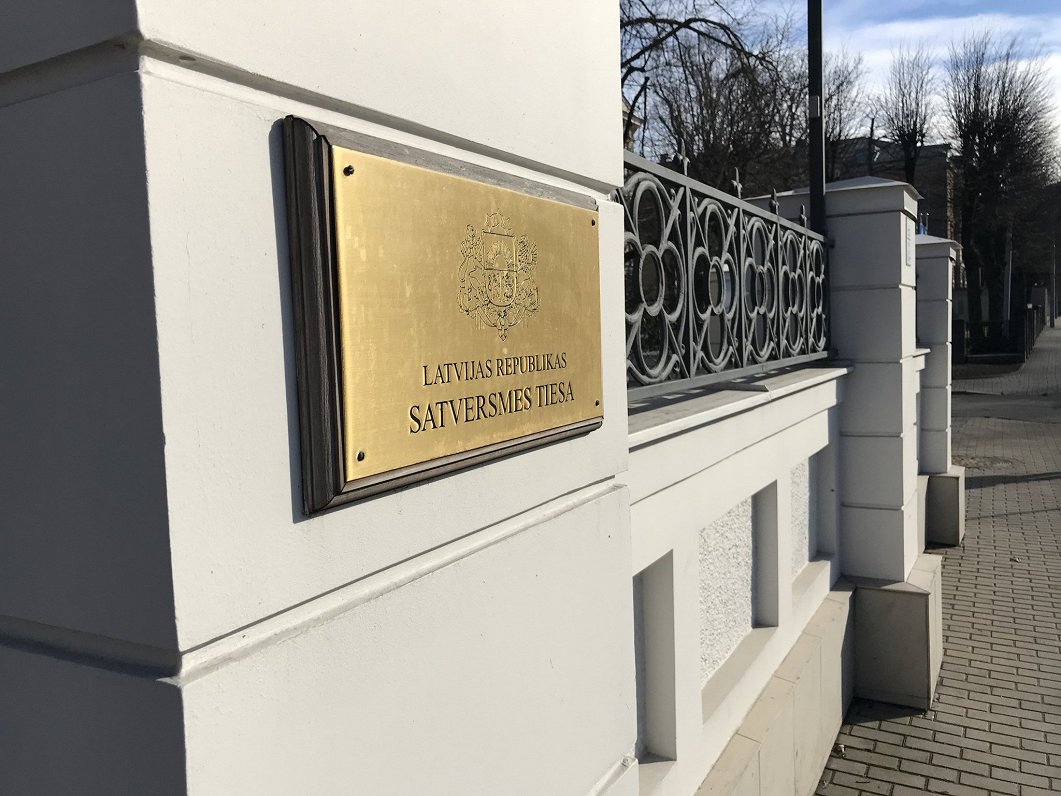The Constitutional Court examined the compatibility of several provisions of the Istanbul Convention with the Constitution, including the Preamble to the Constitution, which refers to Latvia's claimed "Christian values" (despite the state being secular) and includes a postulate regarding the fact that the family is the foundation of a cohesive society. The Constitutional Court stressed that the mention of Christian values is a reference not to religion but to European or Western civilization. The reference to 'family' means that such a form of social life is morally and legally recognized, the ST said.
Both Christian values and the postulate that a family is the foundation of a cohesive society are not, of themselves, a general rule of law. The Constitutional Court therefore terminated the proceedings in the case in the part regarding the compatibility of the contested regulation with the introduction of the Constitution in conjunction with Article 1 of the Constitution.
The Constitutional Court also acknowledged that the contested regulation does not limit the right of the person to freedom of thought, conscience and religion provided in the Constitution. The court closed the proceedings on the compatibility of the contested regulation with Article 99 of the Constitution.
On the other hand, the obligation of the members of the Istanbul Convention to ensure, in a non-discriminatory manner, the disappearance of prejudices, customs, traditions and other practices based on the idea of women being undervalued does not, in itself, prejudice the obligation of the State to protect the family contained in Article 110 of the Constitution. Consequently, the ST also brought an end to proceedings concerning the compatibility of the contested regulation with Article 110 of the Constitution.
The Constitutional Court drew attention to the fact that the scope of the Istanbul Convention covers only the elimination of violence and does not impose any specific acceptance or introduction of marriage or family forms.
The ST also concluded that the prohibition of gender discrimination in the Latvian legal system not only includes a ban on discrimination against a person on the basis of its anatomical gender features, but also applies to social roles, behavior, activities and qualities that the public considers to be relevant to women and men.
The court also brought an end to the proceedings in the proceedings concerning the compliance of the Convention with Article 112 of the Constitution, because it was concluded that Article 14 of the Convention, which relates to the education obligation, does not in itself restrict the rights to education enshrined in the Constitution to any group of persons.
The article of the Istanbul Convention, whose compliance with the Constitution was confirmed by the ST, provides that the special measures necessary to prevent gender-based violence and protect women from such violence are not regarded as discrimination. The ST found that gender-based violence in Latvia is still occurring and women are most often affected. It is concluded that the implementation of the specific measures is aimed at achieving the objective of equality between men and women.
The judgment of the Constitutional Court shall be final and unappealable, it shall take effect on the day of its publication.
Latvia is one of the seven countries of the European Union that have not yet ratified the Council of Europe Convention on the Prevention and Combating of Violence Against Women and Families, or the Istanbul Convention. More than four years ago, when the document was signed by then Welfare Minister Jānis Reirs (New Unity), the National Alliance and the Union of Greens and Farmers objected. It was later criticized by the New Conservative Party, arguing that existing laws in Latvia provide for administrative and criminal liability for such violations.
The Istanbul Convention also became a source for controversy in the Saeima. The ratification of the convention by the Saeima has been stymied by objections regarding the non-compliance with the Constitution, many of which are based upon ideas concerning what constitutes a family or family unit. Within government and Saeima alike, some parties are in favour of ratification, others are against.
The latest ruling is unlikely to stifle opposition to ratification from proponents of what are sometimes termed 'traditional family values'.





























